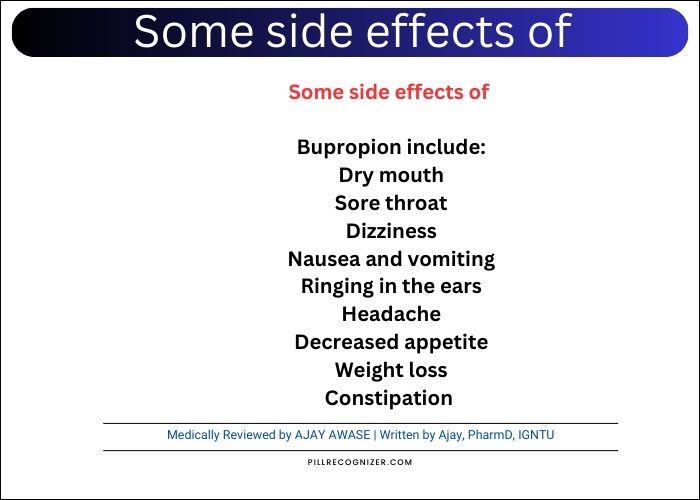Bupropion Hcl SR Tablet, Extended Release – Uses, Side Effects, and More
Medically Reviewed by AJAY AWASE | Written by Ajay, PharmD, IGNTU
Table of Contents
- Bupropion Hcl SR Tablet, Extended Release – Uses, Side Effects, and More
- Drug Information
- Bupropion HCl (V1 49 Pill): Uses
- Side Effects of Bupropion HCl (V1 49 Pill)
- Warnings for Bupropion HCl (V1 49 Pill)
- Precautions for Bupropion HCl (V1 49 Pill)
- Interactions for Bupropion HCl (V1 49 Pill)
- Overdose
- Bupropion HCl (V1 49 Pill) FAQ
The green, round pill bearing the imprint V1 49 is known to be 150 mg of bupropion hydrochloride extended-release (SR). Camber Pharmaceuticals, Inc. provides it.
Bupropion is a member of the medication classes various antidepressants, smoking cessation agents, and is used in the treatment of major depressive disorder, depression, seasonal affective disorder, and smoking cessation. Pregnancy cannot be considered risk-free. The prohibited Substances Act (CSA) does not classify 150 mg of bupropion as a prohibited substance.

Drug Information
| Feature | Value |
|---|---|
| Availability | Prescription Only |
| Drug Class | Miscellaneous antidepressants, Smoking cessation agents |
| Pregnancy Category | C (Risk cannot be ruled out) |
| CSA Schedule | Not a Controlled Drug |
| Labeler / Supplier | Camber Pharmaceuticals, Inc. |
| Manufacturer | Annora Pharma Private Limited |
| National Drug Code (NDC) | 31722-0067 |
Bupropion HCl (V1 49 Pill): Uses
Bupropion HCl (V1 49 Pill): A Versatile Medication for Depression and Smoking Cessation
Bupropion HCl, commonly identified by the imprint V1 49, is a versatile medication with multiple applications. It is primarily used to treat:
- Major depressive disorder (MDD): Bupropion relieves depression sufferers by effectively addressing the symptoms of this mental illness.
- Seasonal affective disorder (SAD): Bupropion is a useful treatment for seasonal affective disorder (SAD), particularly in the winter months when mood swings are more severe.
- Smoking cessation: Bupropion is a well-liked option for those trying to overcome their addiction to nicotine because it helps people stop smoking by lowering cravings and withdrawal symptoms.
It’s important to remember that bupropion should be taken under the guidance of a healthcare professional.
It’s crucial to keep in mind that bupropion must be taken under a doctor’s supervision.
How to use bupropion HCl oral
Before beginning to use bupropion and each time you receive a refill, read the Medication Guide that your pharmacist has supplied. See your physician or pharmacist if you have any queries.
Take this medication orally, generally twice a day, as advised by your doctor, with or without food. You can take this medication with or after a meal or snack if it upsets your stomach.
As instructed by your doctor, take the first dose as soon as you get up in the morning and the second dose at least eight hours later. Using this drug right before bed may result in sleeplessness. To get the most out of this drug, take it on a daily basis. To aid in your memory, consider it at the same times each day.
Side Effects of Bupropion HCl (V1 49 Pill)
There may be symptoms such as dry mouth, sore throat, headache, ringing in the ears, nausea, vomiting, dizziness, decreased appetite, constipation, difficulty sleeping, increased sweating, or shaking (tremor). Notify your pharmacist or doctor right away if any of these side effects persist or worsen.
You might notice an empty tablet shell in your stool. Since the drug has already been absorbed by your body, this side effect is harmless.
Recall that your doctor has prescribed this medication because they believe it will benefit you more than it will cause negative side effects. Many users of this medicine report no significant adverse effects.
Your blood pressure may rise as a result of this drug. Regularly check your blood pressure and notify your physician if the readings are high.
Side Effects of Bupropion HCl (V1 49 Pill)

Bupropion HCl, while effective for various conditions, can cause certain side effects. These can vary from person to person and may depend on the dosage. Here are some common side effects:
- Dry mouth
- Nausea
- Headache
- Insomnia
- Restlessness
- Constipation
- Increased heart rate
- Sweating
- Loss of appetite
- Weight loss
Less common but more serious side effects include:
- Seizures: Particularly in those with a history of seizures or certain medical problems, bupropion may make seizures more likely.
- Mania: In certain instances, people with bipolar disorder may experience manic episodes due to bupropion.
- Skin reactions: Allergic responses can be severe, resulting in breathing difficulties, edema, and hives.
If you experience any severe or unusual side effects, it’s important to contact your healthcare provider immediately.
Warnings for Bupropion HCl (V1 49 Pill)
Bupropion HCl, while effective, comes with certain precautions and potential risks. It’s essential to be aware of these warnings and discuss them with your healthcare provider:
An antidepressant called bupropion is used to treat depression and other mental/mood disorders in addition to helping people quit smoking. Along with many other significant advantages, antidepressants can aid in preventing suicide thoughts and attempts. A tiny percentage of patients (particularly those under 25) who take antidepressants for whatever reason, nevertheless, may develop new or worsened depression, other mental/emotional symptoms, or suicidal thoughts or attempts. Even if antidepressant medicine is not being used to treat a mental or mood disorder, it is still very important to discuss the advantages and disadvantages of the medication with your doctor.
Should you encounter any of these symptoms while using bupropion to help you stop smoking, stop taking it immediately and get in touch with your doctor. Additionally, immediately notify your doctor if you have any of these side effects after quitting your bupropion treatment.
- Seizures: Particularly in people with a history of seizures or certain medical problems, bupropion may make seizures more likely. Before beginning bupropion therapy, let your doctor know if you have epilepsy or have ever had seizures.
- Mania: Those with bipolar disorder may experience manic episodes when using bupropion. Before beginning bupropion therapy, let your doctor know whether you have ever experienced bipolar disorder.
- Skin reactions: Allergic responses can be severe, resulting in breathing difficulties, edema, and hives. Get medical help right once if you see any symptoms of an allergic reaction.
- Weight loss: Weight loss is possible with bupropion. While some people may benefit from this, it’s crucial to keep an eye on your weight and talk to your doctor about any issues.
- Substance abuse: Substance abuse: Alcohol and other medications, as well as certain substances, can interact with bupropion. Notify your physician of any additional prescriptions you are taking, including herbal supplements and over-the-counter medications.
- Pregnancy and breastfeeding: Before using bupropion, check with your doctor if you are expecting or nursing a baby. The advantages and disadvantages need to be properly weighed.
It’s crucial to follow your doctor’s instructions and report any new or worsening symptoms while taking bupropion. By being aware of these warnings and working closely with your healthcare provider, you can minimize potential risks and maximize the benefits of this medication.
Precautions for Bupropion HCl (V1 49 Pill)
If you have an allergy to bupropion or any other allergies, let your doctor or pharmacist know before starting to use it. Inactive chemicals in this product have the potential to trigger allergic reactions or other issues. For further information, consult your pharmacist.
Inform your doctor or pharmacist about all of your medical history before taking this medication. This includes information about diabetes, heart disease, high blood pressure, kidney issues, liver disease, drug or alcohol abuse, use or abuse, seizures, conditions that increase the risk of seizures (such as brain tumors, brain injuries, eating disorders like bulimia or anorexia nervosa), and a personal or family history of glaucoma (angle-closure type).
If you are abruptly ceasing the regular use of alcohol, medications used to treat seizures, or sedatives (such as benzodiazepines like lorazepam), you should not use this medication. You could have more seizures if you do this.
This medication may cause vertigo. Both marijuana and alcohol (cannabis) can increase vertigo. Until you can do so safely, avoid operating machinery, driving, or doing anything else that requires alertness. Steer clear of booze. See your physician if you use cannabis, also known as marijuana. Additionally, alcohol may make seizures more likely.
This drug should only be used when absolutely necessary during pregnancy. Do not stop taking this medication until your doctor instructs you to do so since untreated mental/mood disorders (such as depression, seasonal affective disorder, and bipolar disorder) can be a serious condition. Consult your doctor right away to go over the advantages and disadvantages of using this drug if you intend to become pregnant, are already pregnant, or suspect you may be pregnant.
This medication may have negative effects on a breastfeeding newborn and is excreted in breast milk. See your physician before to nursing.
Interactions for Bupropion HCl (V1 49 Pill)
Drug interactions might alter the way your prescriptions function or raise the possibility of severe side effects. Not every potential medication interaction is covered in this document. Make a list of everything you use, including over-the-counter and prescription medications as well as herbal remedies, and provide it to your pharmacist and physician. Before beginning, stopping, or altering the amount of any medication, get your doctor’s approval.
The following products may interact with this medication: thioridazine, codeine, pimozide, and tamoxifen.
There could be a major (perhaps fatal) drug interaction if MAO inhibitors are taken with this medication. When taking this drug, stay away from MAO inhibitors (isocarboxazid, linezolid, metaxalone, methylene blue, moclobemide, phenelzine, procarbazine, rasagiline, safinamide, selegiline, tranylcypromine). Additionally, it is recommended to avoid using most MAO inhibitors for two weeks before to and following this medication’s treatment. Consult your doctor about the best time to begin or stop taking this drug.
This medicine may cause incorrect test results when used in conjunction with specific medical/lab tests (e.g., brain scans for Parkinson’s disease, amphetamine urine screening). Make sure your doctors and the lab staff are aware that you take this medication.
Overdose
Call 911 if someone has overdosed and is exhibiting severe symptoms like unconsciousness or breathing difficulties. If not, give a poison control center a call straight away. Residents in the US can dial 1-800-222-1222. Residents of Canada can dial 1-844-764-7669. Seizures, extreme disorientation, hallucinations, an elevated heart rate, and unconsciousness are possible overdose symptoms.
Bupropion HCl (V1 49 Pill) FAQ
Common Questions and Answers
General Information
- What is bupropion HCl?
- Answer: A drug called bupropion HCl is used to treat depression, seasonal affective disorder (SAD), and to help people stop smoking.
- What is the V1 49 imprint?
- Answer: V1 49 is a common imprint for bupropion HCl.
- Who provides bupropion HCl?
- Answer: Bupropion HCl is sold by Camber Pharmaceuticals, Inc. under the V1 49 trademark..
Uses
- What is bupropion HCl used for?
- Answer: Seasonal affective disorder, major depressive disorder, and smoking cessation are all treated with bupropion HCl.
- How does bupropion HCl work?
- Answer: Bupropion HCl functions by raising norepinephrine and dopamine levels in the brain.
Side Effects
- What are the common side effects of bupropion HCl?
- Answer: Dry mouth, nausea, headaches, sleeplessness, constipation, restlessness, elevated heart rate, perspiration, appetite loss, and weight loss are typical adverse effects.
- What are the serious side effects of bupropion HCl?
- Answer: Seizures, manic episodes, and severe allergic reactions are examples of serious adverse effects.
Precautions
- Who should avoid taking bupropion HCl?
- Answer: Bupropion HCl should not be taken by anyone with a history of seizures, bipolar illness, or severe allergic reactions.
- Can I take bupropion HCl if I’m pregnant or breastfeeding?
- Answer: Before using bupropion HCl, check with your doctor if you are expecting or nursing a baby.
Interactions
- Does bupropion HCl interact with other medications?
- Answer: Certain drugs, including anticonvulsants, various antidepressants, and nicotine replacement treatment, may interact with bupropion HCl. Tell your doctor everything you take in terms of medications.
Dosage
- What is the typical dosage of bupropion HCl?
- Answer: The disease you are treating and your specific needs will determine the dosage of bupropion HCl. Your doctor will figure out how much is right for you.



